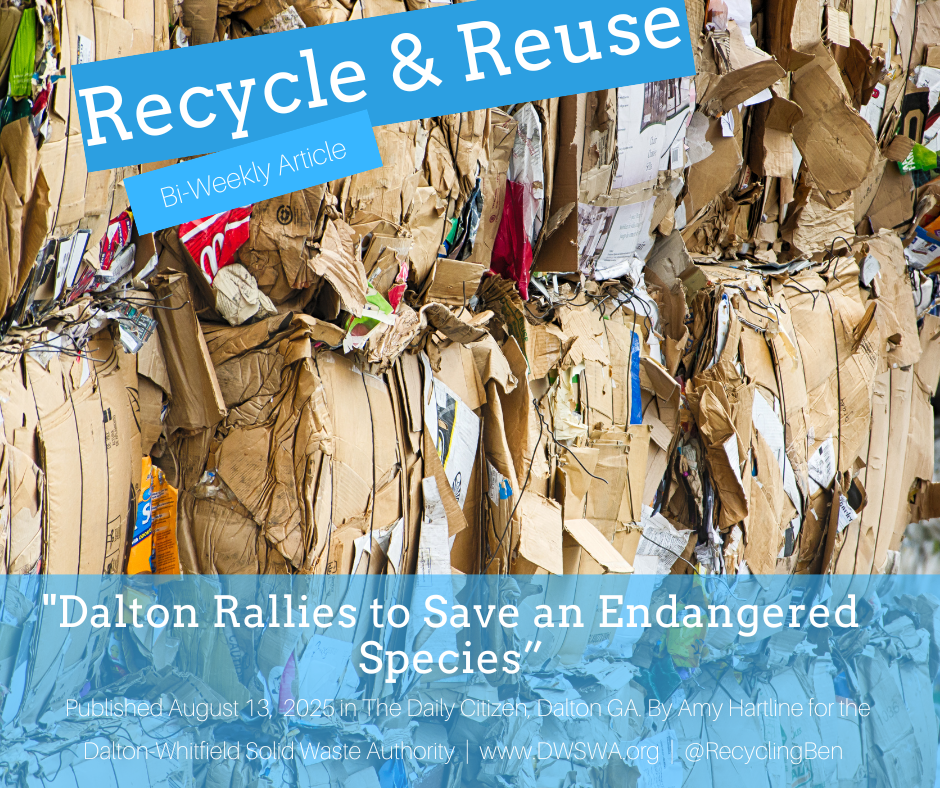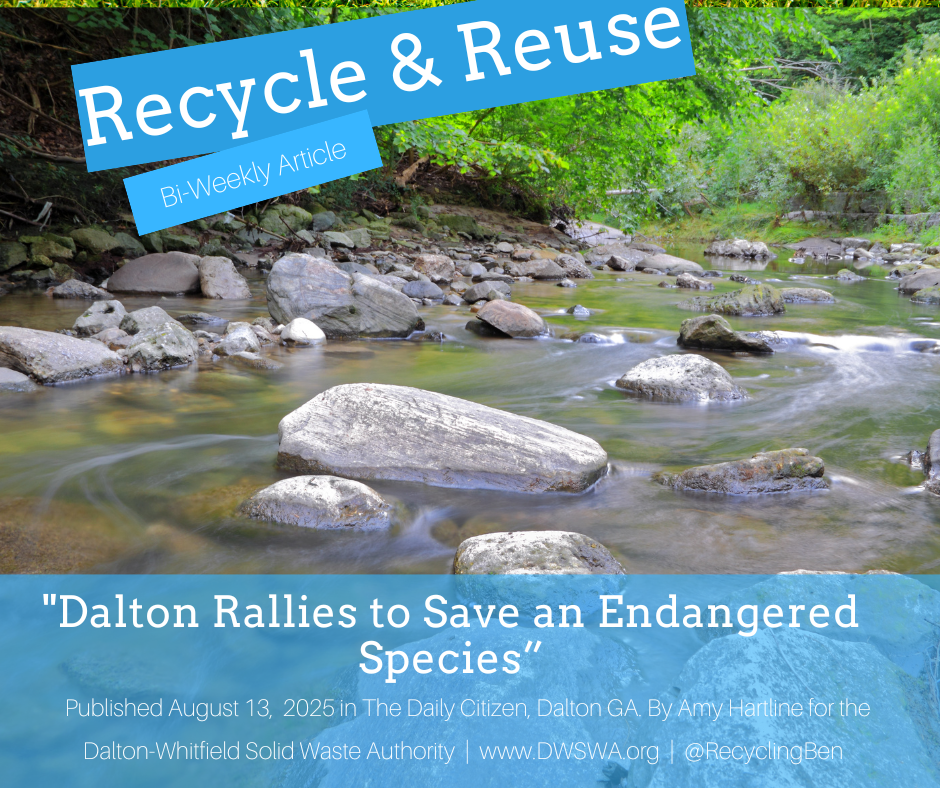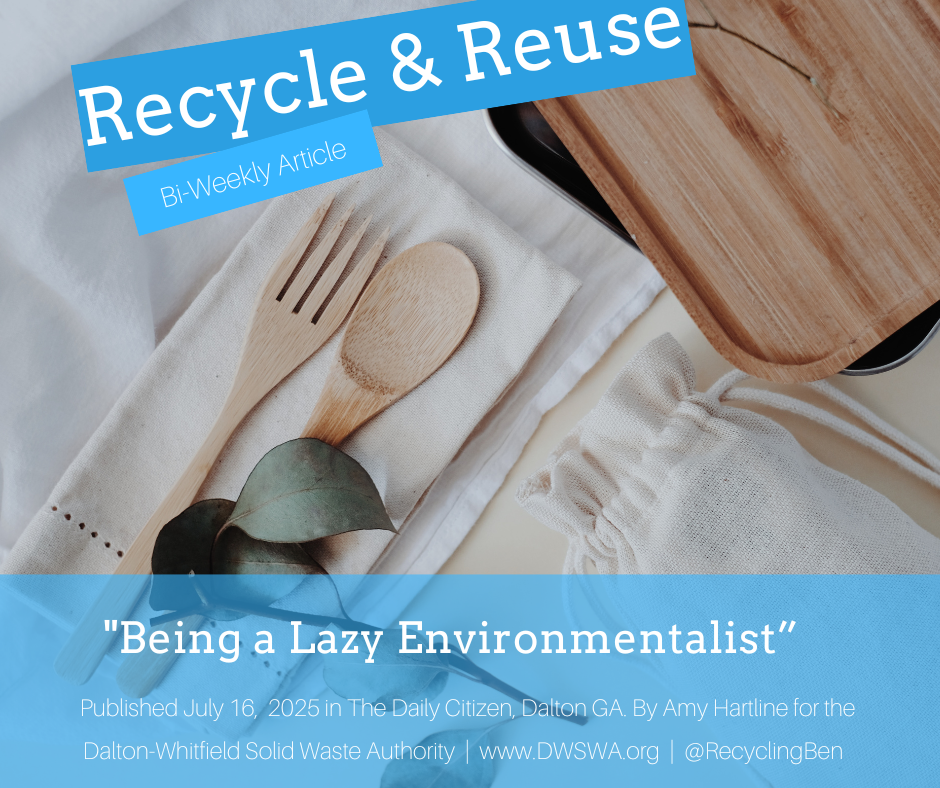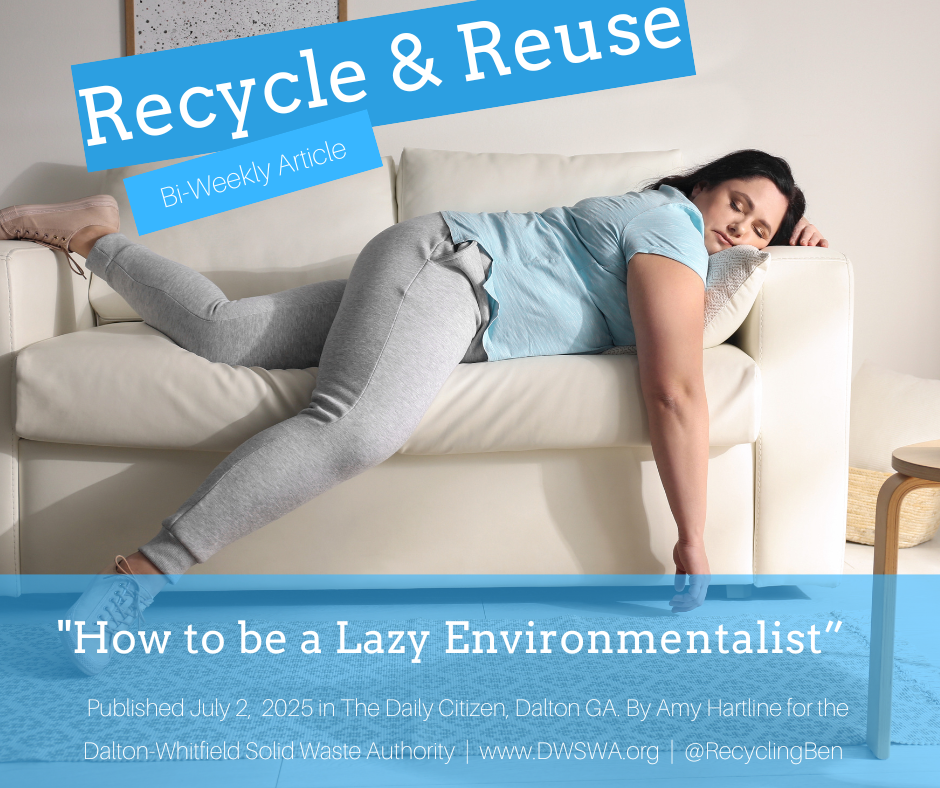Cleaning Up After the Holidays
/Reusing gift bags next Christmas instead of throwing them away is one simple way to reduce the amount of waste during the holiday season.
Just as I’m eagerly awaiting Christmas Day, and even New Year’s Eve, I’m also dreading the cleanup that comes shortly after. As fun as the festivities are they have to come to an end at some point. Cleaning up and figuring out what to do with all those items replaced by new Christmas gifts can be quite a chore. To help keep me on track I like to use some of my favorite RE words: reduce, reuse, recycle, repurpose, return, and refuse.
Reduce means using less so there is less to throw away later. This requires a little bit of pre-planning. For example, when planning meals, you can buy only the amount of food you will actually consume to avoid having leftovers and food scraps to throw away later. Reduce can also mean switching from incandescent lightbulbs to LEDs to waste less energy during the holidays.
Reuse refers to using things over and over again instead of throwing them away. A plastic bottle or reusable tumbler for example can be refilled with water and reused over and over again. One way to reuse holiday items is to save gift bags and tissue paper that are still in great condition. Remove personalized gift tags, then fold and store flat for use next year.
If you have an artificial Christmas tree you can reuse it next year as long as you store it properly. To reduce the environmental impact of an artificial tree they need to be reused for about twenty years since they can’t be recycled. Remove all lights and decorations, dismantle the tree, then put it in a storage box. Place it in a clean, dry place so the tree will look as good as new next year.
Recycle means collecting specific types of materials to send to manufacturers so they can make new products we can use again. After the party collect your glass bottles, aluminum beverage cans, and plastic bottles and put them in the recycling bin. Each of these will go on to have a new life as a new product. Glass bottles for example, may go to be part of new food grade bottles or even fiber glass insulation.
Repurpose is a word that calls out to all the do-it-yourself and crafters out there. A pretty gift box is no longer just a box to be thrown away or recycled – it’s a new desk organizer. Those holiday greeting cards are now the perfect items to make next year’s gift tags, postcards, or even paper wreaths. No matter what you make, the item gets reused and given a second chance at being useful instead of waste.
Return inevitably brings to mind returning and exchanging unwanted gifts. If you received a sweater that is just too small, it’s best to exchange it so that you get something that fits well. And, you never know, someone else may be needing a size small. Getting an item to the store so it has the chance to be used again, instead of throwing it away or letting it hang neglected in the closet, is a preferable solution.
Another version of return is donating. If you have received a gift but don’t have a gift receipt or know where it was purchased a store return may be impossible. Donating it to a local charity may be the next best thing. Call ahead to find out if your particular items are accepted at the charity of your choice. Some may accept gently used items while others need unopened products in their original packaging.
If you decide to re-gift something because you just won’t use it yourself be sure to make a note of who gave you the gift and when. It would be the most terrible faux-paus if you give the gift back to the person that gave it to you! Avoid re-gifting all together by hosting a swap with family, friends, or colleagues. Choose a theme and organize a toy swap, book swap, clothing swap, etc. later in the year.
Refuse is difficult to do during the holiday season when people are generally in a giving mood. It’s hard to say no to a friend or colleague when they’re offering a gift or snack. But, in this case I’m referring to refusing to purchase products that are overly packaged, disposable, or designed to be used only once then thrown away. Plastic forks, straws, paper napkins, and more can be replaced by their more durable, washable, reusable counterparts.
































